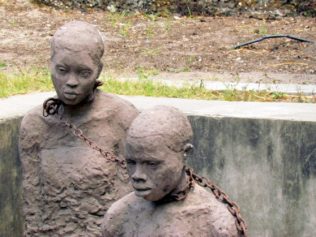The Caribbean nation of Jamaica is considering taking action to remove Queen Elizabeth as head of state. In a presentation to legislators, Jamaican Governor-General Patrick Allen—ironically the Queen’s representative in Jamaica—proposed a constitutional amendment to replace the British monarch with a non-executive president as head of state, as CNN reported. Along with other reforms, including possibly the legalization of marijuana, the winds of change may very well begin to blow in Jamaica.
If it is time for Jamaica to bid farewell to its colonial past, perhaps this is also the perfect time for other Caribbean nations under British influence to follow Jamaica’s example.
There are 53 member nations in the Commonwealth of Nations, which is a voluntary intergovernmental organization of former British colonies, representing 2.2 billon people. According to its website, the Commonwealth “promotes democracy, rule of law, human rights, good governance and social and economic development. We are a voice for small states and a champion for youth empowerment.” Moreover, “the Commonwealth Secretariat provides guidance on policy making, technical assistance and advisory services to Commonwealth member countries. We support governments to help achieve sustainable, inclusive and equitable development.”
Of these member states, Queen Elizabeth is the monarch in 16 of them, known collectively as the Commonwealth Realms, according to the British Monarchist League. They include the United Kingdom, Antigua and Barbuda, Australia, the Bahamas, Barbados, Belize, Canada, Grenada, Jamaica, New Zealand, Papua New Guinea, Saint Kitts and Nevis, Saint Lucia, Saint Vincent and the Grenadines, the Solomon Islands and Tuvalu. Of these, nine are Caribbean nations, while another three—the Polynesian nation of Tuvalu, and the Melanesian countries of Papua New Guinea, and the Solomon Islands—are Pacific islands.
Meanwhile, as the Commonwealth Network notes, another five Commonwealth nations– Brunei Darussalam, Lesotho, Malaysia, Swaziland and Tonga—are monarchies, but with their own national monarchies rather than the Queen.
In addition to Jamaica, Barbados has announced its intentions to drop the Queen and become a parliamentary republic, with the proposed change to take effect on November 30, 2016—marking the fiftieth anniversary of the country’s independence. As VOA News reported in January, Prime Minister Freundel J. Stuart told a meeting of the ruling Democratic Labour Party (DLP) last year that “it’s a little awkward in the year 2015 to still have to stand up and instead of pledging allegiance to Barbados to be pledging allegiance to Her Majesty the Queen.”
He added it makes no sense to have a British monarch as head of state in an independent country. The measure would require two-thirds of the House and Senate. For years, according to the Associated Press, the issue has divided Bajans along generational lines, with older people viewing the queen as a “symbol of stability,” and younger people viewing her as an anachronism. The legislation is expected to pass, according to The Guardian. Meanwhile, the people of Tuvalu voted to keep the Queen in 1986 and 2008, as did Australia by a narrow 54.9 percent margin in 1999, as The Guardian reported. In addition, recent polls have shown that Canadians prefer a Canadian-born people selected as head of state, though there are no plans to make such a change. And although New Zealand did not have such a referendum, it did vote in March to retain the Union Jack insignia in its national flag, according to Sky News.
But why not the other Caribbean nations formerly under British colonial rule, or under the thumbs of other colonial powers? Such a decision would be timely, as the Caribbean Community (CARICOM) nations seek justice from Europe in the form of reparations. In 2013, CARICOM decided to establish a reparations commission, and the heads of government agreed to establish national committees on reparations. According to CARICOM, the purpose was “to establish the moral, ethical and legal case for the payment of reparations by the former colonial European countries, to the nations and people of the Caribbean Community, for native genocide, the transatlantic slave trade and a racialized system of chattel slavery.” Further, the Community of Latin and American States CELAC Parliamentary group also adopted CARICOM’s call for reparations. The reparations commission–formed “within the context of the global celebration of the life of Nelson Mandela” and his dedication to truth, justice and reconciliation–seeks “reparatory dialogue with the former slave-owning states of Europe, which were enriched by these crimes, with a view to seeking their support for the eradication of the legacy that serves to subvert the development efforts of national societies.” Of particular interest are the nations of Britain, France, Spain, Portugal, the Netherlands, Norway, Sweden and Denmark.
The CARICOM nations identified six areas of the Caribbean condition that are the direct result of European crimes and should be the focus of reparations: 1) public health, including chronic diseases; 2) education and illiteracy; 3) cultural institutions that promote the imperial history of the beneficiaries of slavery; 4) cultural deprivation and devaluation of Black identity; 5) psychological trauma, and 6) scientific and technological backwardness.
Britain compensated 46,000 slave owners for the loss of their property upon the abolition of the dreaded institution, but has not paid reparations to Black people. Further, as Jamaica and other Caribbean nations demand reparations, the British government has recently shown a reluctance to entertain the idea. According to one estimate, Britain owes the Caribbean £7.5 trillion (US$10.7 trillion), of which 30.6 percent, or £2.3 trillion (which is J$413.6 trillion and US$3.5 trillion) would be owed to Jamaica.
Given that the crimes are many, these Caribbean nations must seek reparatory justice from the European powers that subjugated them for so long, and at an unspeakable cost. Part of that process should be breaking free from the trappings of their enslaved past, including a refusal to pledge allegiance to the Queen of England.


